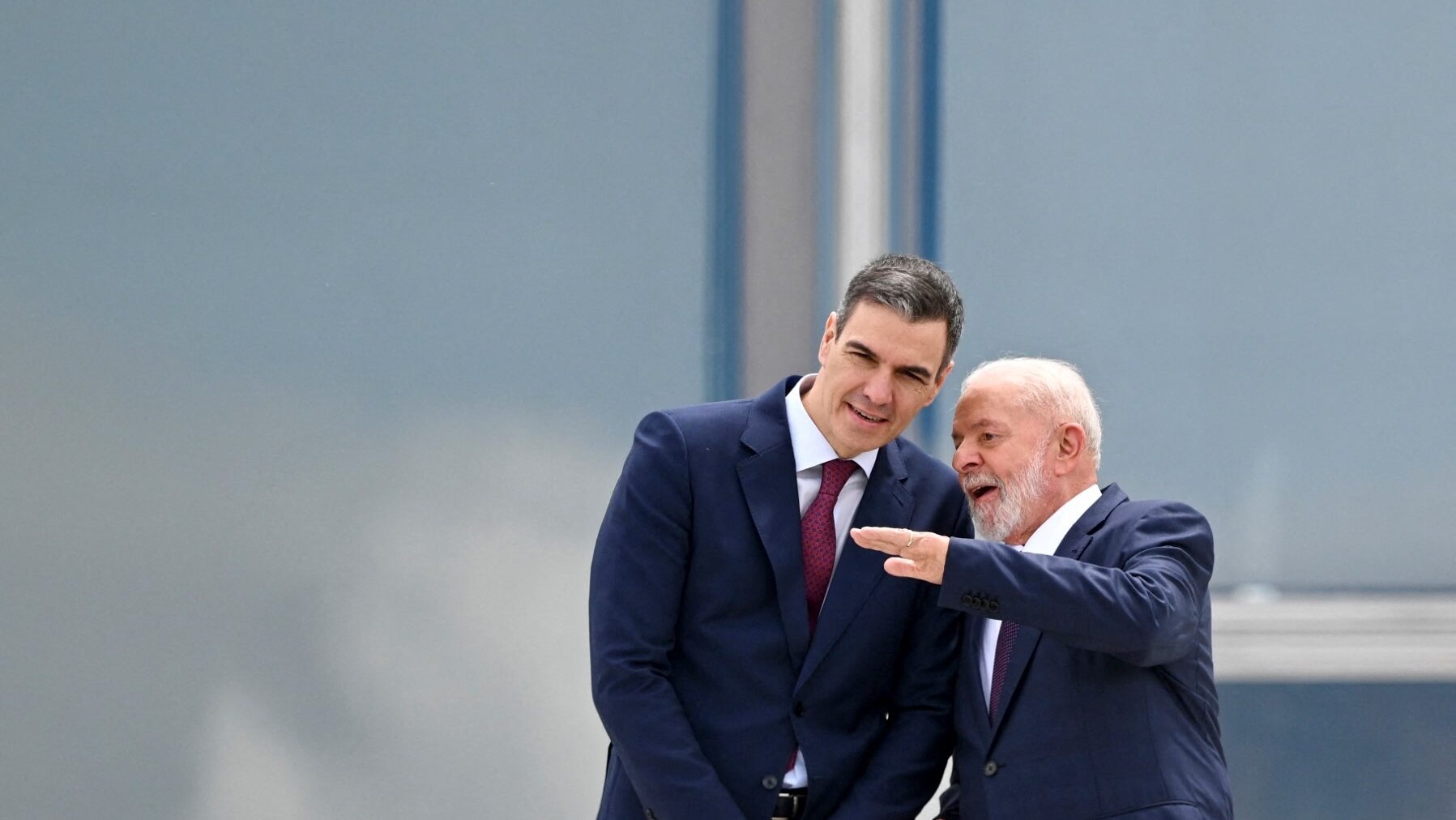
Spanish Prime Minister Pedro Sanchez (L) and Brazilian President Luiz Inacio Lula da Silva talk during his welcome ceremony at Planalto Palace in Brasilia on March 6, 2024.
Photo: EVARISTO SA / AFP
Spanish prime minister Pedro Sánchez has launched a campaign to portray himself as a leading advocate for democracy worldwide, rallying allies against what he calls the “ultra-right international” led by U.S. president-elect Donald Trump, billionaire Elon Musk, and Italian PM Giorgia Meloni. However, his lofty rhetoric rings hollow for many, who point to his own controversial actions that have undermined democratic norms at home.
In a recent speech at Madrid’s Reina Sofía Museum commemorating 50 years of Spanish democracy, Sánchez decried what he described as a coordinated assault on democratic institutions by “far-right” forces. He pointed specifically to Musk, whom he accused of supporting reactionary populism across Europe, including Germany’s populist Alternative für Deutschland (AfD).
Sources in Sánchez’s government told El País that they are seeking to strengthen ties with Latin American leaders like Brazil’s Luiz Inácio Lula da Silva to counterbalance the right-wing wave.
While Sánchez wants to position himself as a defender of democracy, his administration has been embroiled in multiple scandals that cast doubt on his commitment to democratic norms.
One of the most damaging scandals involves accusations that Sánchez’s government mishandled €30 million in COVID-related contracts. The so-called “Koldo case” implicates high-ranking members of Sánchez’s Socialist Party, with allegations of kickbacks and illegal commissions. Businessman Victor de Aldama testified that Sánchez personally thanked him for his contributions, contradicting the prime minister’s denials of any connection. Sánchez dismissed the allegations as baseless but has yet to provide substantive evidence to clear his name.
Adding to the controversy, Sánchez enacted a decree in late 2024 that tightened his government’s control over Spain’s public broadcaster, RTVE. The changes reduced opposition influence on RTVE’s board, a move critics called a blatant power grab. Opposition figures and independent observers accused Sánchez of turning RTVE into a propaganda tool, prioritising his political survival over institutional integrity.
The prime minister is also entangled in a corruption investigation involving his wife, Begoña Gómez. Accusations of influence trafficking and misuse of public office have sparked unprecedented scrutiny, with Sánchez being summoned as a witness. His defence of Gómez, including labelling the accusations as a smear campaign by the “far right,” has failed to quell public unease.
Sánchez’s critics argue that his actions are incompatible with his warnings about threats to democracy. By consolidating power within public institutions and facing unresolved corruption allegations, Sánchez risks appearing as a leader willing to sacrifice democratic principles for political gain.
Meanwhile, Sánchez’s reliance on separatist and far-left parties to maintain his fragile government has led to accusations of undermining Spanish unity and democratic standards. The prime minister’s anti-right rhetoric, which may previously have helped him electorally, is increasingly seen as a deflection from his administration’s failings.
As Sánchez prepares to attend the World Economic Forum in Davos, his efforts to rally international allies will face scepticism. For a leader under fire at home for discarding the very principles he claims to defend, the challenge will be convincing others that his vision for democracy is more than just rhetoric.
